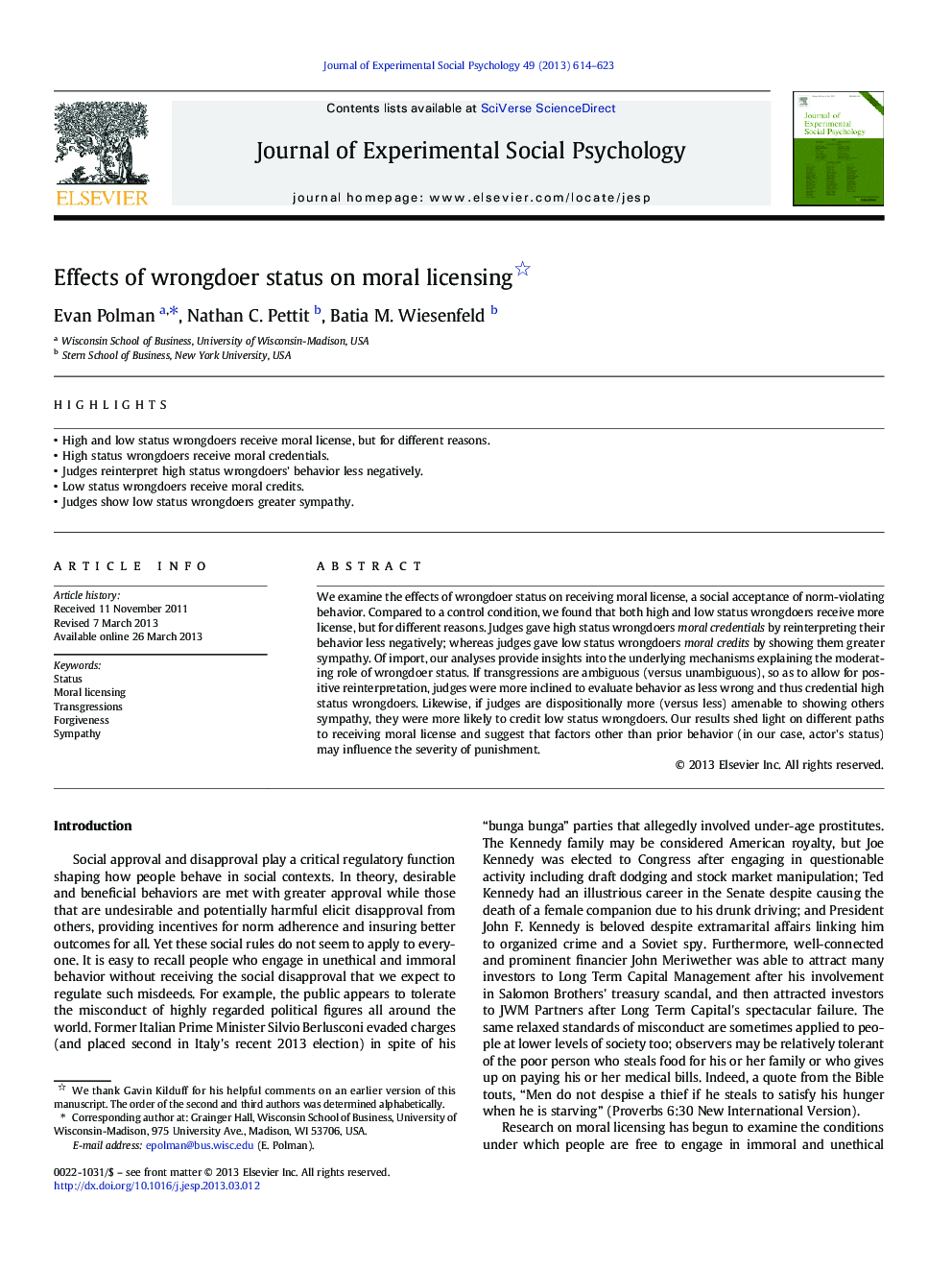| Article ID | Journal | Published Year | Pages | File Type |
|---|---|---|---|---|
| 947911 | Journal of Experimental Social Psychology | 2013 | 10 Pages |
•High and low status wrongdoers receive moral license, but for different reasons.•High status wrongdoers receive moral credentials.•Judges reinterpret high status wrongdoers' behavior less negatively.•Low status wrongdoers receive moral credits.•Judges show low status wrongdoers greater sympathy.
We examine the effects of wrongdoer status on receiving moral license, a social acceptance of norm-violating behavior. Compared to a control condition, we found that both high and low status wrongdoers receive more license, but for different reasons. Judges gave high status wrongdoers moral credentials by reinterpreting their behavior less negatively; whereas judges gave low status wrongdoers moral credits by showing them greater sympathy. Of import, our analyses provide insights into the underlying mechanisms explaining the moderating role of wrongdoer status. If transgressions are ambiguous (versus unambiguous), so as to allow for positive reinterpretation, judges were more inclined to evaluate behavior as less wrong and thus credential high status wrongdoers. Likewise, if judges are dispositionally more (versus less) amenable to showing others sympathy, they were more likely to credit low status wrongdoers. Our results shed light on different paths to receiving moral license and suggest that factors other than prior behavior (in our case, actor's status) may influence the severity of punishment.
